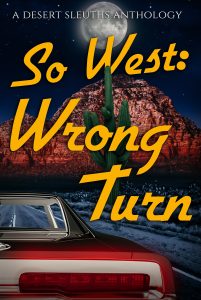Creativity is a mystery. One day your ideas flow and eight thousand words pour out onto paper in an hour or two. Another time a complete short story arrives at three in the morning, as fast as you can write it down. A few days later, the brakes come on and it is a struggle to write more than a sentence or two. How do you deal with this boom and bust?
Creative Ways To Deal With Creativity Problems
Some writers have come up with coping mechanisms or ways to describe the process that help the words keep coming
For example, Elizabeth Gilbert shares how poet Ruth Stone “captures” a poem.
…she [Ruth] would feel and hear a poem coming at her from over the landscape. It was like a thunderous train of air and it would come barrelling down at her over the landscape. And when she felt it coming…cause it would shake the earth under her feet, she knew she had only one thing to do at that point. That was to, in her words, “run like hell” to the house as she would be chased by this poem.
The whole deal was that she had to get to a piece of paper fast enough so that when it thundered through her, she could collect it and grab it on the page.
Gilbert tells the story during this wonderful TED talk about the fickleness of the creativity.
Gilbert suggests it helps to develop coping mechanisms like talking to the elusive creative genius in the corner of the room. Whatever works to get rid of the angst.
Describing the process in concrete ways can help, too. Take Shannon Hale’s quote:
“I’m writing a first draft and reminding myself that I’m simply shoveling sand into a box so that later I can build castles.”
Nice sentiment. Unfortunately, my current work in progress feels more like I accidentally shoveled in kitty litter instead of sand.

Ritual
Some writers resort to rituals, like always using the same pen, drinking coffee from the same mug, or sitting in a certain chair. Shortlist reveals authors who stand up or lie down to write. They report Maya Angelou checks into a hotel where everything has been taken off the walls of the room. If I could produce work like hers, I would certainly give that a try.
Relaxing Sounds
Listening to certain repetitive sounds or music can improve focus and boost productivity. Stimulating your senses can get your creative juices flowing, too. YouTube has a number of videos that run from two to three hours with relaxing background sounds. I’m listening to swamp sounds right now. Blizzard winds are nice, too.
Play
Play stimulates creativity in children, why not adults? Try making friends with your inner child. Toss a ball. Play a game. Dress up as your favorite character. Finger paint. Make some actual sand castles. Whatever sounds like fun at the moment.
Get Feedback From Creative People
Although at times negative critiques can freeze up the writing process, look for one of those positive, imaginative people who energize you and bounce some of your questions off them. They just might help you over the hurdles.
Walk, Nap, Etc.
Taking a walk can get the blood flowing to your brain if you’ve been sedentary.
On the other hand, don’t forget that the type of thinking that writing requires takes energy. Take a nap to recharge those batteries. Connecting with your subconscious isn’t a bad thing, either.
According to an article about thinking in Scientific American, Claude Messier of the University of Ottawa writes:
“The brain has a hard time staying focused on just one thing for too long. It’s possible that sustained concentration creates some changes in the brain that promote avoidance of that state. It could be like a timer that says, ‘Okay you’re done now.’ Maybe the brain just doesn’t like to work so hard for so long.”
So, there you go. Give yourself permission for some R and R, and perhaps that fickle organ will produce something worthwhile. If not, you can always go change the cat litter.
Have you ever struggled with creativity? How did you jump start it again?



